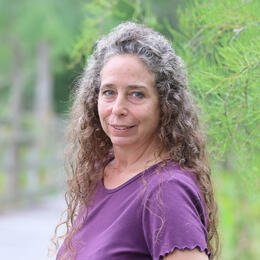Beach-nesting and other coastal birds have begun laying eggs along Florida's coasts and on rooftops in coastal areas. Spring and summer mark critical times of year for these vulnerable species, as they must try to find safe habitats away from human disturbance, storms, and predators to successfully raise their chicks.
While wading birds nest in coastal trees, sea and shorebirds lay their eggs right on the sand. If they can’t find suitable beach habitat, some birds resort to nesting on large, gravel rooftops. Bay area Threatened species, including American Oystercatcher, Least Tern, and Black Skimmer, especially perceive people as a threat and will take flight whenever beachgoers or their dogs approach too closely.
“Repeated human disturbance often results in birds abandoning the colony, and if they can’t find a safe location, their nesting season is wasted,” said Holley Short, Tampa Bay Area Shorebird Program Manager. “In fact, we have already observed major movements of Black Skimmer colonies on local beaches, such as St. Pete Beach, due to excess disturbance by people and their dogs,” she added.
Because these threatened species nest directly on the sand and shell shoreline, it is important for beachgoers and boaters to heed nesting signage and avoid areas posted as "no trespassing," even if they don't notice any birds. Audubon staff worked with a team of dedicated volunteers to install several miles of string, flagging, and informational signs in several areas.
How to help beach-nesting birds raise their next generation of chicks to adulthood:
- Respect posted areas, even if you don’t see any birds inside.
- If birds dive-bomb you, carefully move away as there may be a nest or chicks nearby.
- Ensure no trash or food remnants are left behind, as this can attract predators.
- Keep dogs off the beach, on board your boat or at home.
- Remain alert for rooftop nesting colonies in coastal areas.
- Consider joining our volunteer bird stewardship flock! Visit fl.audubon.org/bird-stewards.
Audubon Florida protects birds and the places they need, today and tomorrow. Audubon works throughout the Americas using science, advocacy, education, and on-the-ground conservation. State programs, nature centers, chapters, and partners give Audubon an unparalleled wingspan that reaches millions of people each year to inform, inspire, and unite diverse communities in conservation action. A nonprofit conservation organization since 1900, Audubon believes in a world in which people and wildlife thrive. Learn more at Fl.Audubon.org.







